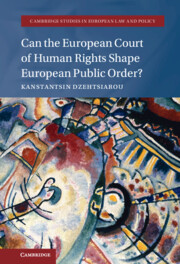The extraterritoriality or extraterritorial application of international and European human rights treaties refers to the recognition by those treaties' states parties of the international and European human rights of individuals or groups of individuals situated outside their territory and, in a second stage, to the identification of their corresponding duties to those individuals. Examples of extraterritoriality abound in international human rights practice, and in particular in the European Court of Human Rights’ case law. Except for vague and often misleading gestures to the universality of human rights, which allegedly requires their extraterritorial application, however, many of the normative considerations underlying the extraterritorial applicability of human rights have not been broached in the human rights law literature. Nor, conversely, have human rights theorists, even among those who take the supply side of human rights seriously, devoted much attention to the threshold criteria for the abstract recognition of human rights and the trigger of the corresponding duties. To remedy some of those shortcomings, this article endeavours to bring some normative human rights theorizing to bear on the European Court of Human Rights’ recent practice on extraterritoriality. More specifically, the article delves deeper into the notion of ‘jurisdiction’ qua threshold criterion for the applicability of the European Convention on Human Rights both within and outside its states parties’ territories; distinguishes it from related notions such as authority, coercion, power, or control; and explains its normative consequences.


